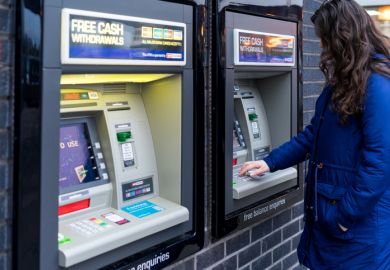During the 2020/21 academic year, the highest ever proportion of pupils on free school meals entered UK higher education, but the gap between them and their peers has barely changed in a decade, new figures show.
The latest data on school leavers in England reflected steady progress on widening participation, with just over 28 per cent of pupils on free school meals going on to university, the highest ever share.
A gap between these pupils and their peers not on free school meals has decreased slightly for the first time in nearly decade but remains at just under 19 percentage points for 2020-21, one point wider than a decade before.
This pattern of stratified progress continues across many of the Westminster government’s official statistics on widening participation in higher education, released on 28 July.
Grouping small areas of the UK by historical participation shows that a gap of almost 30 percentage points remains between the most and least disadvantaged areas, although this is slightly down from about 34 percentage points in 2010-11.
Looking at only universities with stringent entry requirements, the latest data show that the most advantaged pupils are still about four and a half times more likely to go than the most disadvantaged.
Slow progress on achieving widening participation goals has long been a concern for the sector but initiatives such as summer schools have often failed to attract disadvantaged students, according to one recent study. Educational charity the Sutton Trust has called for “radical change” in the use of contextual admissions at the UK’s top universities.
Meanwhile, for the first time ever, the figures showed that just over half of girls went on to higher education, compared with about 38 per cent of boys. The gender gap has grown from just under 8 percentage points a decade ago to just over 12 in the latest data.
Among white British pupils getting free school meals, the gender gap has more than doubled over a decade, now almost 8 percentage points, with boys only now reaching the girls’ participation rate from 2010-11.
The participation rate for black pupils has increased by more than any other ethnic group, up from about 44 per cent in 2009-10 up to just over 62 per cent in the latest figures.
In general, white pupils continue to lag behind other ethnic groups, with less than half the participation rate of British students with Chinese heritage at all universities and about a quarter for those with stringent entry requirements.
For the first time, white pupils have the lowest progression rate into universities with stringent entry requirements, falling just below black pupils at 10.5 per cent.
Gypsy, Roma and traveller pupils remain at the bottom of most of the participation tables, despite some universities launching dedicated initiatives in recent years.
Register to continue
Why register?
- Registration is free and only takes a moment
- Once registered, you can read 3 articles a month
- Sign up for our newsletter
Subscribe
Or subscribe for unlimited access to:
- Unlimited access to news, views, insights & reviews
- Digital editions
- Digital access to THE’s university and college rankings analysis
Already registered or a current subscriber?








